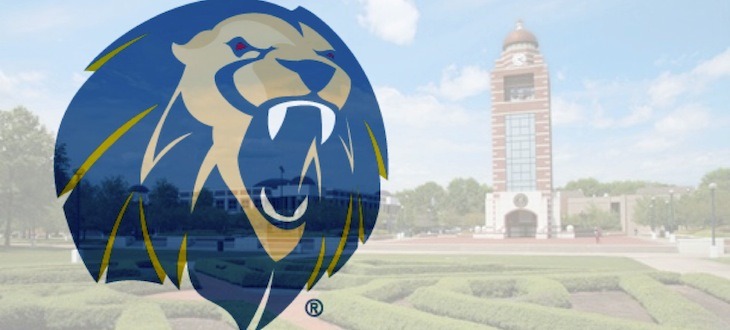UAFS community leadership course, ‘a class about getting things done’
by May 7, 2018 3:00 pm 813 views

“How many of you feel like you can make a difference in your community?” Rusty Myers ends each year of the community leadership course he and fellow businessman Fred Williams teach at the University of Arkansas at Fort Smith (UAFS) with some variation of this question. And every year, a roomful of hands go up.
The hands belong to junior and senior participants in the semester-long study offered each spring for the last nine years. In 2018, there were more hands than ever before as Myers and Williams “graduated” their biggest class with certificates of proficiency in community leadership.
Myers gave credit, observing that three months “is sort of unrealistic to make something happen,” especially when students “haven’t really developed those types of networks” to get things done. So much of the class, Myers said, is “relationship building.”
But despite the limited relationships and despite the class coming to an end, many efforts created over the last three months will not. In fact, ideas such as a new disc golf course at Lee Creek Park near downtown Van Buren are coming to fruition. The estimated $10,000 project includes $6,000 for baskets, $2,000 for concrete work, and $2,000 for tee signs. The group of four consisting of students Albert Spanel, Brandon Evans, Mason Rhodes, and Tristen Long already has one pledge of around $3,000 for the purchase of the baskets from the Van Buren A&P Commission.
Another group consisting of students Skyler Webster, Aliena Grider, Mackenzie Mullikin, Mallory Finn, and Garrett Dix were able to draw the support of downtown investor and General Pallets owner Phil White. The alleyway beautification project would connect the outside streets of downtown Fort Smith with Garrison Avenue by installing rotating artwork and lighting improvements at the 900 block.
The lighting could be limited in implementation due to the question of who would handle ongoing electricity costs. Still, the artwork is a go, and it will include installations from UAFS students, a chalk wall, and possible expansion to the 300, 500, 700, and 800 blocks. The group members intend to continue working on the project after the semester is over, and the school has offered internship credit to this and other community leadership projects that continue through to completion.
Other projects were born on social media with “The Fort – Make It Yours” stemming from a simple Facebook post that would eventually lead to several hundred responses across a variety of social networks. Group members Breanne Ring, Maddie Gilliam, Chasse Daniels, Landon Phillips, and Justin Kitten made it their mission to address the lack of enthusiasm and involvement that sometimes overshadows Fort Smith. The group found that many of the suggestions were already being implemented by community leaders and UAFS students. They just needed a way to communicate this progress to the community.
From that, an Instagram page featuring positive change and a T-Shirt sales campaign encouraging involvement was launched.
Other groups created financial literacy programs and implemented a pilot program for public recycling in six of Fort Smith’s parks. The financial literacy group was frustrated by how “young adults are set up to make bad financial decisions from the start” through credit card offers, student loans, and a lack of formal financial literacy instruction, group member Sarah Balow said. Their program — Financial Readiness: Educate & Empower (F.R.E.E.) has workshopped with a similar program at Future School of Fort Smith, and they are in the process of implementing theirs in surrounding area schools, such as Alma and Hackett. The recycling group was able to work with the city of Fort Smith to make recycling canisters available in six public parks with the goal of a complete rollout they intend to finish post-graduation.
Each participating group pooled resources and got out into the community physically and virtually to locate resources, establish relationships, and get things done, said co-instructor Williams.
“They’re just a great class of outstanding young people, and I’m extremely proud of them. They’re so doggone smart.” Williams said students would “step up and take care of things even when they didn’t have to.”
“And that’s what a lot of this class is. It’s how to get things done,” he added.
